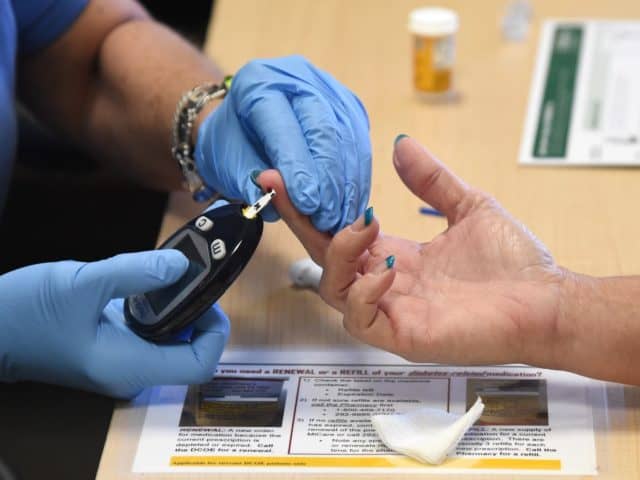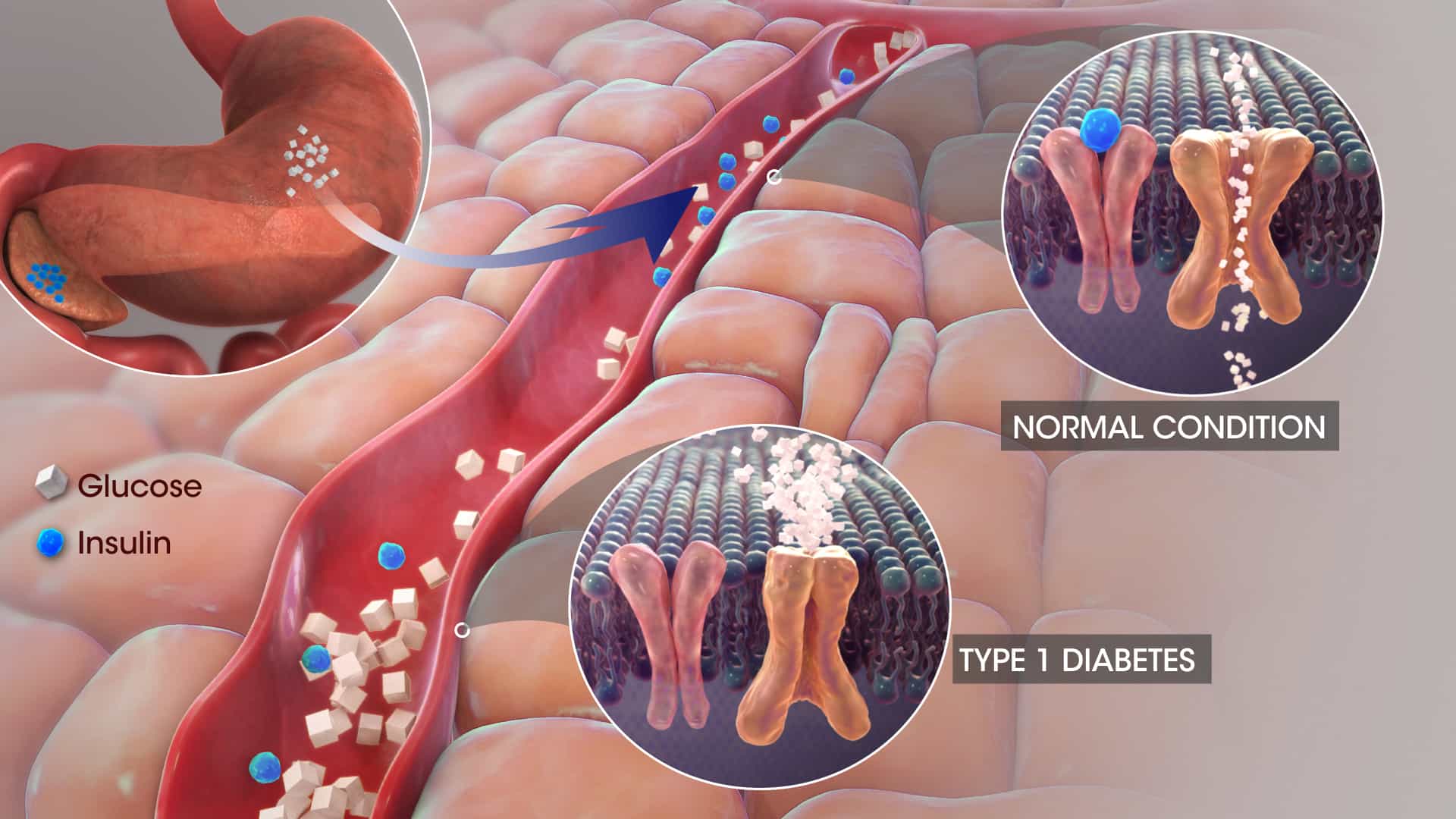Last Updated on February 9, 2024 by Alexander Sennuga

Education about how to avoid diabetes is intriguing! After all, it is a fact that Diabetes disease is spreading worldwide.
It will, therefore, be of help to share 7 helpful tips to avoid or reverse diabetes.
I have been lucky enough to overcome diabetes through this option after an encounter. Indeed I was able to abandon medical prescriptions finally.
If you want to achieve the same result of overcoming diabetes type 2 naturally, please read on.
I describe and recommend below simple but powerful ways to achieve it.
The 7 Tips To Avoid or Reverse Diabetes
How To Prevent Diabetes Naturally
Tip #1: Normalise Your Leptin Sensitivity

Leptin insensitivity, the body’s resistance to the brain’s control of the amount of adequate food, can cause health problems.
This is the resistance we call food craving and usually leads to obesity, thus putting a person at risk for diabetes 2 especially.
Tip #2: Control Your Body Weight(BMI)

Diabetes will never become an incurable disease again!
Obesity is a significant risk factor for diabetes. By maintaining a healthy weight, you can significantly lower your chances of developing the condition. Incorporate portion control into your eating habits, focus on nutrient-dense foods, and avoid excessive calorie consumption. Combine a healthy diet with regular exercise to achieve and maintain a healthy weight.
Evidence from various studies reveals that overcoming overweight can actually reduce the risk of diabetes and even reverse the disease.
Almost invariably, obese people are known to be potentially at risk of diabetes.
Tip #3: Normalise Your Insulin Sensitivity

Insulin is responsible for sending the glucose in the foods we eat to the body cells. If insulin is unable to do so, it is called insulin resistance.
Appropriate remedial steps need to be taken for the body to regain insulin sensitivity otherwise it can lead to high blood sugar – diabetes.
Tip #4: Exercise Is Worth The Effort

Engaging in regular physical activity is essential for diabetes prevention. Aim for at least 150 minutes of moderate-intensity exercise per week, such as brisk walking, cycling, or swimming.
Regular exercise improves insulin sensitivity and helps maintain a healthy weight, reducing the risk of developing diabetes.
Setting a goal of healthy body weight has many health benefits including a low risk of diabetes. Medical personnel frequently advise diabetes patients to regularly engage in physical exercise in various ways. This is part of the efforts to self-manage their condition.
Physical exercise works.
How To Avoid Diabetes Completely
A balanced diet is crucial to preventing diabetes. Focus on consuming a variety of nutrient-rich foods, including fruits, vegetables, whole grains, lean proteins, and healthy fats. Limit your intake of processed foods, sugary snacks, and beverages high in added sugars.
Incorporate foods that have a low glycemic index, such as legumes and non-starchy vegetables, as they help regulate blood sugar levels.
In addition to other measures advised, there are three other things being recommended.
Tip #5: Eat Carbs Last During Meals

One of the tips to avoid or reverse diabetes is to manage what we do at the dining table.
Blood sugar spikes will always occur after a meal. There is scientific evidence that can guide us about the order of choosing what we eat during a meal.
It shows that if we start with protein, fat or fiber, and lastly carbohydrates, there will be much reduction in the after-meal blood sugar spikes.
Tip #6: Eat To Your Meter

We should be guided by the blood sugar meter when making food choices. One good thing is that there are tools to enable us to do this.
One way to go about it is to check our blood sugar 2 hours after eating. The result obtained will reveal the effects of the meal on blood glucose.
We should, however, seek the support of the doctor or dietitian in interpreting the result. Advice from them will also help to make the necessary dietary changes.
The bonus point here is to have the habit of drinking enough water. This results in passing urine normally and therefore enables flushing out the excess sugar.
Special Foods To Prevent Diabetes
Diabetics are the kind of people who have to be very mindful of what they eat.
They need to focus on what to eat or drink to avoid the dangerous effect of blood sugar spikes after meals.
Tip #7: Embrace the following foods
- Magnesium Rich Foods

Recent studies have shown that foods rich in magnesium can help lower the risk of diabetes.
Examples of such foods are the following:
- Nuts
- Dark chocolate
- Avocado
- Fatty fish
Insufficient magnesium in the body system can cause insulin resistance leading to diabetes.
- Low Carb Foods
Biochemistry tells us that the human body converts carbohydrates in foods to simple sugars. These sugars then enter into the bloodstream causing blood glucose to rise considerably.
It simply means the less high-carb foods consumed the better for the undesirable blood sugar spikes.
Foods in the category of low carbs are the following, among others:
Meat, Eggs, Dairy products, and non-refined carbs.
- Veggies
Veggies are known to have low starch content, so quite suitable as foods for a low level of blood sugar. The following are the typical ones usually recommended:
- Kale
- Carrots
- Brocolli
- Asparagus
Q&A
Q: What is diabetes?
A: Diabetes is a chronic condition characterized by high blood sugar levels. It occurs when the body either doesn’t produce enough insulin (a hormone that regulates blood sugar) or cannot effectively use the insulin it produces. This leads to an accumulation of glucose in the blood, which can cause various health problems if not managed properly.
Q: How can a balanced diet help prevent diabetes?
A: A balanced diet plays a crucial role in diabetes prevention. By consuming a variety of nutrient-rich foods, including fruits, vegetables, whole grains, lean proteins, and healthy fats, you can maintain stable blood sugar levels and support overall health. These foods provide essential vitamins, minerals, and fiber while minimizing the consumption of processed foods and added sugars that can contribute to diabetes risk.
Q: Does exercise really help in avoiding diabetes?
A: Yes, exercise is highly beneficial for avoiding diabetes. Regular physical activity improves insulin sensitivity and helps maintain a healthy weight, both of which are important factors in preventing diabetes. Engaging in activities such as brisk walking, cycling, or swimming for at least 150 minutes per week can significantly lower the risk of developing the condition.
Q: How does obesity contribute to diabetes?
A: Obesity is a major risk factor for diabetes. Excess body weight, especially around the abdomen, increases insulin resistance and interferes with the body’s ability to regulate blood sugar effectively. By maintaining a healthy weight through a combination of a balanced diet and regular exercise, you can reduce your chances of developing diabetes.
Q: Can stress affect the development of diabetes?
A: Chronic stress can contribute to the development of diabetes. When the body is under stress, it produces hormones that can raise blood sugar levels. Prolonged exposure to high levels of stress hormones can impair insulin production and increase insulin resistance, increasing the risk of diabetes.
Managing stress through relaxation techniques, regular exercise, and adequate sleep can help reduce this risk.
Q: Why is it important to attend regular check-ups for diabetes prevention?
A: Regular check-ups and screenings are essential for diabetes prevention. These visits allow healthcare professionals to monitor your blood sugar levels, blood pressure, and cholesterol levels, which are key indicators of diabetes risk. Early detection and intervention can help prevent the progression from prediabetes to full-blown diabetes and enable timely management strategies to be implemented.
Regular check-ups also ensure overall health and well-being.
Q: Can diabetes be cured?
A: At present, there is no known cure for diabetes. However, it can be effectively managed through lifestyle modifications, medication, and insulin therapy. By adopting a healthy lifestyle, monitoring blood sugar levels, and following the treatment plan prescribed by healthcare professionals, individuals with diabetes can live fulfilling lives and minimize the risk of complications associated with the condition.
Ongoing research is being conducted to explore potential cures or long-term solutions for diabetes.
Conclusion
That’s it!
We have shared 7 Helpful Tips To Avoid Diabetes. High blood sugar is not beyond human control.
Indeed, any dedicated efforts with focus and self-disciple to these tips may lead to remarkable success.
The diabetic may ultimately put diabetes into remission – what is believed by some as a diabetes cure.
Maintenance of a proper lifestyle and diet can achieve the desired blood glucose level.
Please let me know of other helpful tips.
Kindly use the comments form.
FAQ
**Q: What are some effective tips to avoid diabetes?**
A: To prevent diabetes, it’s important to maintain a healthy lifestyle. Incorporate regular exercise into your routine, such as brisk walking or cycling, for at least 30 minutes a day. Make sure to consume a balanced diet that includes plenty of fruits, vegetables, whole grains, lean proteins, and healthy fats. Avoid excessive consumption of sugary beverages and processed foods. Additionally, maintaining a healthy weight and managing stress levels can greatly reduce the risk of developing diabetes.
**Q: How can I reduce the risk of diabetes through dietary choices?**
A: Making smart dietary choices is crucial in lowering the risk of diabetes. Opt for high-fiber foods like whole grains, legumes, and leafy greens, as they help regulate blood sugar levels. Limit the intake of sugary snacks, sodas, and processed foods that are high in unhealthy fats and added sugars. Instead, focus on incorporating lean proteins, healthy fats, and complex carbohydrates into your meals. Drinking water or unsweetened beverages instead of sugary drinks can also significantly decrease the risk of diabetes.
**Q: Can physical activity help prevent diabetes?**
A: Absolutely! Regular physical activity plays a significant role in preventing diabetes. Engaging in exercises such as walking, jogging, swimming, or dancing helps control weight, lowers blood sugar levels, and improves insulin sensitivity. Aim for at least 150 minutes of moderate-intensity aerobic activity per week, spread across several days. Additionally, incorporating strength training exercises twice a week helps build muscle, which aids in better glucose utilization and overall metabolic health.
**Q: How does maintaining a healthy weight contribute to diabetes prevention?**
A: Maintaining a healthy weight is crucial for diabetes prevention. Excess body weight, especially around the waist, increases the risk of developing type 2 diabetes. By adopting a balanced diet and engaging in regular physical activity, you can achieve and maintain a healthy weight. Weight management helps improve insulin sensitivity, reduces inflammation, and promotes overall metabolic health, thereby significantly lowering the risk of diabetes.
**Q: Can stress management help in avoiding diabetes?**
A: Yes, stress management plays a vital role in avoiding diabetes. Chronic stress can contribute to unhealthy behaviors, such as overeating or indulging in comfort foods, which can lead to weight gain and insulin resistance. Practice stress reduction techniques such as deep breathing exercises, meditation, yoga, or engaging in hobbies that help you relax. Getting adequate sleep and maintaining a healthy work-life balance also aid in stress management and reduce the risk of diabetes.
**Q: Are there any specific foods that can help prevent diabetes?**
A: While no specific food can guarantee the prevention of diabetes, certain choices can contribute to a lower risk. Incorporating foods like berries, leafy greens, nuts, seeds, whole grains, and fatty fish into your diet can have a positive impact on diabetes prevention. These foods are rich in antioxidants, fiber, and essential nutrients that support overall health and help regulate blood sugar levels. Remember, a balanced diet and overall healthy lifestyle are key factors in diabetes prevention.
**Q: How does family history impact the risk of developing diabetes?**
A: Family history can influence the risk of developing diabetes. If you have close family members, such as parents or siblings, with diabetes, you may have a higher likelihood of developing the condition. While genetics can play a role, it’s important to note that lifestyle factors, including diet and exercise, also contribute significantly to diabetes risk. By adopting a healthy lifestyle and making informed choices, you can minimize the impact of family history on your own risk of developing diabetes.
**Q: Is it necessary to consult a healthcare professional for diabetes prevention?**
A: Consulting a healthcare professional is highly recommended for diabetes prevention. They can assess your individual risk factors, provide personalized advice, and help create a tailored plan to avoid diabetes. A healthcare professional can guide you in making lifestyle modifications, monitor your progress, and suggest appropriate screenings to identify any potential signs of diabetes early on. Regular check-ups and open communication with your healthcare provider are essential in maintaining optimal health and reducing the risk of diabetes.
Very Important: PLEASE note that all information provided on this site is for educational purposes only. They should not be used for medical advice, diagnosis, or treatment.
So, please consult your doctor and/or registered dietitian or nutritionist for any professional advice. Please do this before applying any of the information here on your health issues.


wow great information thanks for sharing keep up the good work
Thanks very much indeed much appreciated Satyajit!
YOU CANNOT reverse diabetes once you have it.. unless you get new organs so this is false information.. any diabetic can ask their doctor and their doctor will tell them the same thing.. maybe you can do less insulin or lose a lot of wait or take medicine for it but you CANNOT reverse I.. So by stating this .. YOU are LYING to the readers
Hi Sandy, diabetes type 2 is very much reversible, and there are loads of testimonies to support that.
I am a living testimony – diabetes with type 2 diabetes and within 8 weeks, got it reversed, 5 years on without any medications again!
The formula is simple: figure out the cause of the medical condition(invariably lifestyle and unhealthy dietary habits), obesity and stress), reverse and prevent those risk factors, and put the disease into remission.
Kill the root and kill the fruit(type 2 diabetes)
Best wishes.
Sometimes i feel some pain on my kidneys what might be the problem
Hi Victor,
Have you ever been diagnosed with diabetes?
Wether or not, please head over to your doctor for a full medical check-up without delay.
My best wishes!
Alexander
I thought this my help you… God bless you !https://youtu.be/mAwgdX5VxGc
Thanks, Bonita
How do I tell which type diabetic I am .I just started being one
Hi Riziki,
The symptoms of both type 1 and type 2 indeed are the same. But, type 2 being a diet and lifestyle disease, any healthy changes you make to them (healthy eating, weight loss, reduced stress, and daily exercise) may drive down the blood sugar level. Type 1 will require insulin for life! Your healthcare providers will guide you through. Cheers.
Hi Riziki, I am of the opinion that only your doctor should confirm the diabetes type to you – no one else is professionally qualified to do so. Please consult your doctor. Cheers.
Alexander
Thanks much encouraging
Thank you, Monicah.
Alexander